Director
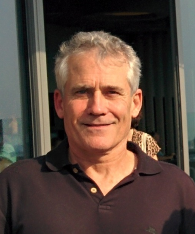
Michael Hogg
Dr. Hogg’s research focuses on intergroup relations, group processes and the self-concept. It is closely associated with social identity theory. He has researched solidarity and cohesion; group structure and processes of marginalization and deviance; group fragmentation and the pursuit of subgroup autonomy; attitudes and norms; influence and leadership; communication, language and social identity; social identity motivations; and identity-uncertainty and extremist identities and groups.
Lab Manager
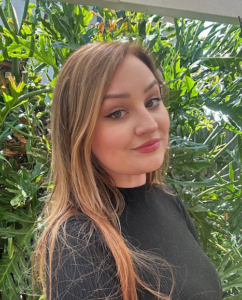
Ciara Hernandez studies the social psychological underpinnings of international conflict. Specifically, she focuses on intergroup relations, attribution biases, threat perceptions, and their potential to shape the tone of American foreign policy.
Lab Members
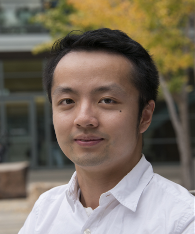
Xiang Ao investigates how group members respond towards various types of ingroup deviance, how identity threats trigger group members’ negative sentiment towards immigrants and outgroups, and the role of social identities in collective mobilization and protest in culturally diverse regions (e.g., Hong Kong).
Kerr, N. L., Ao, X., Hogg, M. A., & Zhang, J. (2018). Addressing replicability concerns via adversarial collaboration: Discovering hidden moderators of the minimal intergroup discrimination effect. Journal of Experimental Social Psychology, 78, 66-76. https://doi:10.1016/j.jesp.2018.05.001
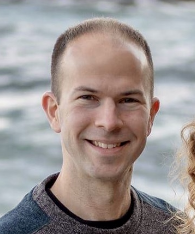
Michael Baum is broadly interested in group processes, intergroup relations, and social identity. Specifically, he is exploring how religiosity, political affiliation, and other social identity related phenomena predict attitudes toward science and scientific expertise.
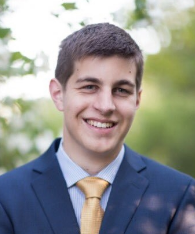
Matthew Burt (goes by MattB) focuses, through the lens of social identity theory, on the use of funny language and humor. He explores how funny people, both in- and outgroup members, can be viewed as sources of influence and can even persuade us to join their cause.
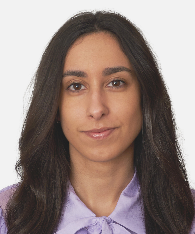
Michelle Blaya Burgo‘s main focus is on how violent radicalization and extremism can be prevented among youth. Her broad interests are group processes and social justice.
Bélanger, J. J., Robbins, B. G., Muhammad, H., Moyano, M., Nisa, C. F., Schumpe, B. M., & Blaya, M. (2020). Supporting political violence: The role of ideological passion and social network. Group Processes and Intergroup Relations, 23(8), 1187-1203. https://doi.org/10.1177/1368430220933954
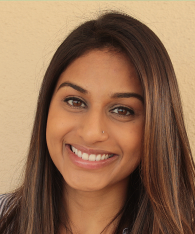
Sejal Desai has a broad interest in group processes and intergroup relations, with a specific interest in group and organizational culture and self-construal processes.
Desai, S. N., & Hogg, M. A. (2023, online). Organizational identification and leader evaluation in a global workspace: Interaction of self-uncertainty, self-construal, and organizational culture. Journal of Applied Social Psychology, 1-15. https://doi.org/10.1016/j.jesp.2023.104581
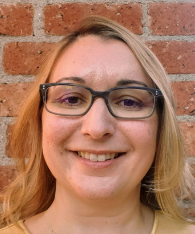
Harmony Frederick focuses on academic and social identities related to higher education, specifically how these identities impact student retention and continued connection to institutions following graduation.
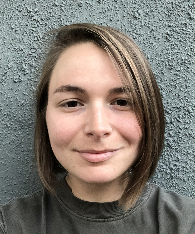
Samantha Gardner is researching social identity, uncertainty, language, identity threat, and the polarization of attitudes.
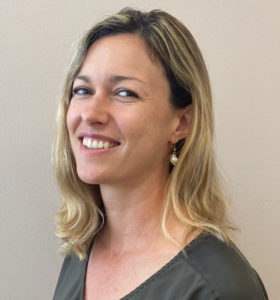
Virginia Gary is interested in investigating how the intersection of lived experience, identity, and intergroup relations affects perceptions of injustice and inequality, specifically among advantaged groups, and how this can inform pathways for motivating collective action.

Wendy (Siwei) He studies ethnolinguistic identity, uncertainty, and social identity. Specifically, the impact of uncertainty on the evaluation of various ethnolinguistic groups and their members.
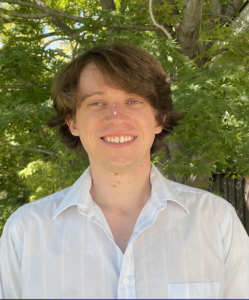
Quinn J Hundgen works with Dr. Wesley Schultz. He is researching how to harness relationship with nature and identity to encourage pro-environmental behavior and sustainable fashion consumption.
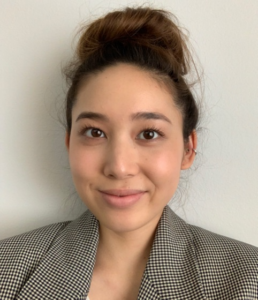
Bliss Paik is interested in intercultural communication, identity-uncertainty motivation, and communication accommodation.
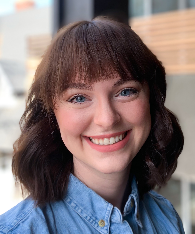
Mary Peterson is researching factors contributing to the recruitment and membership of individuals into dissenting groups, and the methods these groups use to maintain membership.
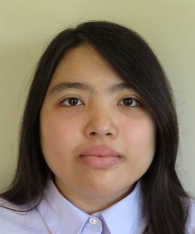
Amelia Rodriguez researches the role of technology in identity formation, and its role in creating ideological echo chambers.
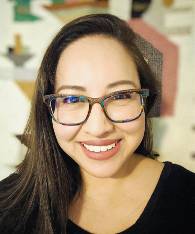
Crys Saludes studies how people derive a positive sense of human connection, social identity and cohesion through the social networks they belong to.
Collisson B., Saludes C., Crosier B.S. (2018). Social connection seeking. In Zeigler-Hill V., Shackelford T. (Eds.), Encyclopedia of personality and individual differences. Springer, Cham. https://doi.org/10.1007/978-3-319-28099-8_1829-1
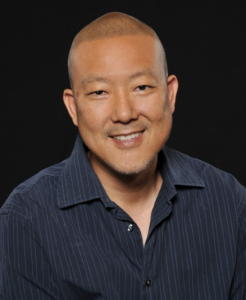
James Shih has an interest in political aspects of social identity processes – for example leadership in social identity formation and politicization, and how social identities are formed, maintained, and utilized under different political systems and ideologies.
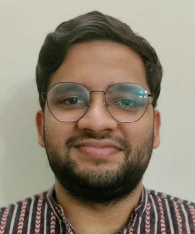
Akshay Sharan’s research lies at the intersection of social and political psychology. His general focus is on the study of social identities and morality in intergroup conflict, and specifically he studies identity uncertainty and its social and political implications.
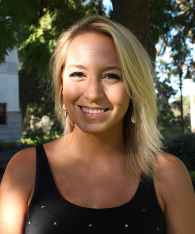
Austin Shockley focuses broadly on how self- and identity-uncertainty may underpin zealotry and societal extremism.

Timothy Silva is interested in examining how technological change impacts social identity dynamics. Tim is currently Head of Research at Bank of the West in San Francisco.
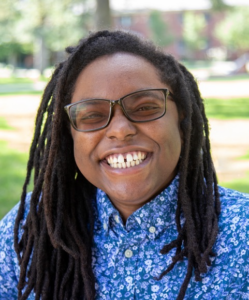
Dejah Yansen is broadly interested in how intergroup attitudes and behaviors are affected by the impact of relative group status, identity complexity, and subjective identity threat.
Rumble, A. C., Willcox, K., Imada, H., & Yansen, D. (2022). Beyond reciprocity: Forgiveness, generosity, and punishment in continuing dyadic interactions. Journal of Theoretical Social Psychology, article 7259257. https://doi.org/10.1155/2022/7259257
Postdoctoral and Professorial Affiliates
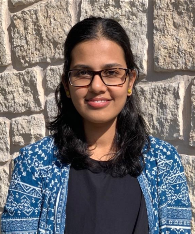
Sucharita Belavadi is a former Social Identity Lab member and postdoc, and is currently an Assistant Professor at Flame University in Pune, India (https://flame.edu.in/faculty/sucharita-belavadi/). She investigates self-uncertainty processes in intergroup conflicts, especially in the context of Indian religious and language-based groups. Of particular interest is how groups perceive marginal ingroup members within the context of language and social identity. She also examines how groups engage in a narrative of competitive victimhood during intergroup conflict.
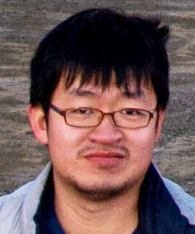
Kaiyuan (KY) Chen, a former social identity lab manager, is currently a Postdoctoral Research Fellow at the University of Salzburg, Austria. He studies how uncertainty affects trust in elections and institutions, and how essentialist attributions of ingroup and outgroup characteristics can help reduce self-and identity-uncertainty in intergroup contexts.
Chen, K., & Hogg, M. A. (2024, online). What makes us “we”? The positivity bias in essentialist beliefs about group attributes. Journal of Experimental Social Psychology, in press. https://doi.org/10.1016/j.jesp.2023.104581
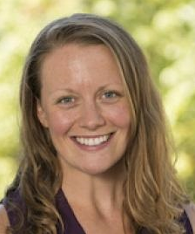
Amber Gaffney is a former Social Identity Lab member and postdoc and currently an Associate Professor of Social Psychology at California Polytechnic University Humboldt. She is also an Associate Editor for Group Processes and Intergroup Relations and for the Journal of Applied Social Psychology. She studies how prototypical and non-prototypical group members create and manage uncertainty to enact social change. Amber is also interested in social comparison processes and in social identity and uncertainty dynamics in the political sphere.
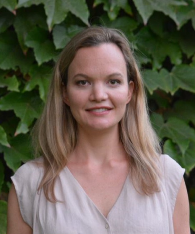
Fiona Grant, a former Social Identity Lab member and postdoc, is an Associate Professor of Social Psychology at the University of Mauritius. She studies social identity processes in health contexts, specifically the role of group membership in health promotion and exercise behavior. She also conducts research on social identity complexity and how people cope with multiple identities during times of uncertainty.
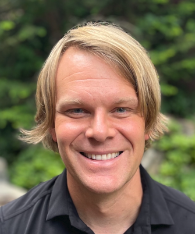
Justin Hackett is a former member of the lab and currently Professor of Psychology and Chair of the Psychology Department at Pennsylvania Western University. His research focuses primarily on social engagement and sense of community.
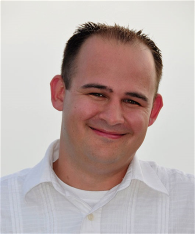
Zachary Hohman is a former lab member and currently an Associate Professor of Experimental Psychology at Texas Tech University. His research focuses on group processes, intergroup relations and the self-concept, and also the role played by attitudes and persuasion. Zach is also interested in how these processes play out in health contexts.
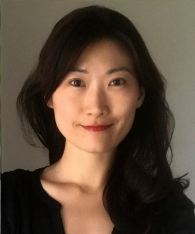
Jiin Jung is a former Social Identity Lab member and postdoc, and is currently an Assistant Professor in the Department of Psychology at Lehigh University. She researches the impact of identity-uncertainty on group identification, intergroup perceptions, and group integration and schism. She has collected data in the context of Korean reunification and Scottish independence. Jiin also examines computational models of social influence, and uncertainty-related determinants of depersonalization and projection.
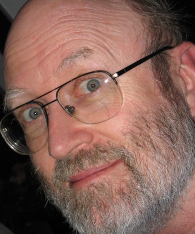
Norbert L. Kerr was a visiting professor at Claremont Graduate University for the 2016-2017 academic year. He is an Emeritus Professor of Psychology at Michigan State University and an Honorary Professor of Social Psychology at the University of Kent in Canterbury. His primary research interests are group performance and decision making, social dilemmas, psychology and the law, social influence, and HARKing (Hypothesizing After the Results are Known).
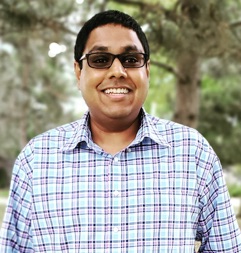
Jeff Ramdass is a former social identity lab member and is currently Project Director for the Center for Social Development and Education at the University of Massachusetts, Boston. He studies reactions to in-group and outgroup members’ unethical behavior and violation of moral principles, mainly in academic and political contexts.
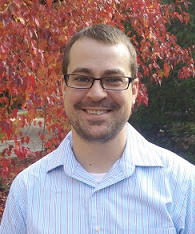
David Rast is a former lab member and is currently an Associate Professor of social psychology at the University of Alberta in Edmonton, Canada. He is a former Associate Editor of the Journal of Applied Social Psychology. He examines when non-prototypical leaders become influential and how leaders transcend conflict-charged intergroup relations.
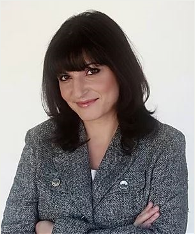
Viviane Seyranian is a former lab member and an Associate Professor of Psychology at California Polytechnic State University, Pomona. Her research examines the role of communication tactics and source types (e.g., majorities-minorities) on attitudes, emotions, and behaviors. Viviane is testing a theory called social identity framing, which outlines communication tactics related to social identity change.
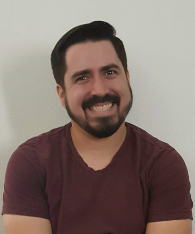
Joey Wagoner, a former lab member and postdoc, is currently an Assistant Professor in the Department of Psychology at the University of Colorado, Colorado Springs. Joey studies the dynamics of subgroup autonomy and independence within a larger group, and the ultimate possibility of schism. He also investigates the role of group-level warmth and competence perceptions in resolving identity-uncertainty.
Visiting Scholars
2024
Dominic Abrams (University of Kent, UK)
Alessandro Milani (Sapienza Università di Roma, Italy)
Laura Prislei (Sapienza Università di Roma, Italy)
Stefano Mastandrea (Università Degli Studi Roma Tre, Italy)
Ray Paloutzian (Westmont College)
2023
Leonardo Francesco Boccia (Sapienza Università di Roma, Italy)
Ray Paloutzian (Westmont College)
2022
Ray Paloutzian (Westmont College)
2020
Bin Ling (Hohai University, China)
2019
Bin Ling (Hohai University, China)
Antti Vanhoja (University of Helsinki, Finland)
2018
Oluf Gøtzsche-Astrup (Aarhus University, Denmark)
Stefano Mastandrea (Università Degli Studi Roma Tre)
2017
Matthew Hornsey (University of Queensland, Australia)
Robin Vallacher (Florida Atlantic University)
Gianmarco Donadei (Sapienza Università di Roma, Italy)
Alessio Mammarella (Sapienza Università di Roma, Italy)
2016
Dominic Abrams (University of Kent, UK)
2015
Clara Paz (Universidad de Barcelona, Spain)
2014
Matteo Antonini (Sapienza Università di Roma, Italy)
Antonis Gardikiotis (Aristotle University of Thessaloniki, Greece)
2013
Vladimir Turjacanin (Banja Luka University, Bosnia and Herzegovina)
Madeleine Moret (University of Amsterdam, The Netherlands)
Antonis Gardikiotis (Aristotle University of Thessaloniki, Greece)
2012
Robin Martin (Aston Business School, UK)
Camilo Cristancho Mantilla (Universidad Autónoma de Barcelona, Spain)
Vladimir Turjacanin (Banja Luka University, Bosnia and Herzegovina)
2009
Daan van Knippenberg (Rotterdam School of Management, The Netherlands)
2008
Dominic Abrams (University of Kent, UK)
Robin Martin (Aston Business School, UK)
Marilynn Brewer (Ohio State University)
2007
Richard Crisp (University of Kent, UK)
David Sherman (University of California, Santa Barbara)
Former Members
Yasemin Acar (University of St. Andrews, Scotland)
Janice Adelman (Society for the Psychological Study of Social Issues)
Nicolas Barreto (Stanford University)
Sucharita Belavadi (Flame University, Pune, India)
Robert Blagg (University of California, Los Angeles, Consortium for Children & Families)
Danielle Blaylock (Queens University, Belfast, UK)
Eunice Choi (Saddleback College)
Jared Chapman
Alicia Davis
Tamara Duggan-Herd (Kravis Leadership Institute, Claremont-McKenna College)
Amber Gaffney (California Polytechnic University Humboldt)
Liran Goldman (Naval Criminal Investigative Service)
Fiona Grant (University of Mauritius, Mauritius)
Justin Hackett (California University of Pennsylvania)
John Haller (Claremont McKenna College)
Zachary Hohman (Texas Tech University)
Jiin Jung (Lehigh University)
Carola Leicht (University of Kent, UK)
Namrata Mahajan (Cobblestone Applied Research and Evaluation, Los Angeles)
Monique Matelski (Cobblestone Applied Research and Evaluation, Los Angeles)
Cody Packard
Jeff Ramdass (University of Massachusetts, Boston)
David Rast (University of Alberta, Edmonton, Canada)
Mark Rinella (Food and Drug Administration, US)
Jason Rivera (Claremont Graduate University and Pitzer College)
Shirley Samson (University of Kent, UK)
Dana Turcotte (Netflix, Inc.)
Suzanne van Gils (Maastricht University, The Netherlands)
Joey Wagoner (University of Colorado, Colorado Springs)
Jennifer Williams
Alison Young
Isaac Young (University of Arizona)
Jinghui (Elaine) Zhang (Arizona State University)
Jacqueline Shaib
Kaiyuan Chen (University of Salzburg, Austria)
Heather Stopp (Pennsylvania State University)